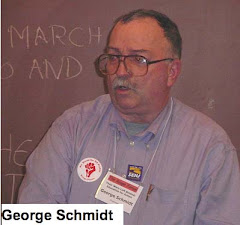image sources: better world heroes, americans who tell the truth, northland poster
music from the Folkways' Collection of Classic Labor Songs
HOLD THE FORT
We meet today in freedom's cause
And raise our voices high.
We'll join our hands in union strong
to battle or to die.
CHORUS:
Hold the fort for we are coming.
Union men be strong.
Side by side we battle onward.
Victory will come.
(Repeat after each verse)
See our numbers still increasing.
Hear the bugles blow.
By our union, we shall triumph
Over every foe.
Fierce and long the battle rages,
But we shall not fear.
Help will come whenever needed.
Cheer, my comrades, cheer.
Notes: from workers' union
Written by Philip P. Bliss, the song has an interesting history.
The title comes from a famous incident of the American Civil War. In October, 1864, when Union troops were trapped in a fort at Allatoona Pass, near Atlanta, General Sherman sent a message which was signalled by flags from mountain to mountain: "General Sherman says hold fast. We are coming." Despite heavy attacks, the men held the fort until Sherman's army rescued them.
A certain Major Whittle, who had served with the Union forces, told this story at a Sunday School meeting in Rockford, Illinois, in May, 1870. In the audience was Philip P. Bliss, a well-known singing evangelist. Inspired by the story, that night Bliss wrote a gospel hymn with the following refrain:
"Hold the fort, for I am coming!
Jesus signals still.
Wave the answer back to Heaven -
By Thy Grace we will'.”
Soon it was published in sheet music and became one of the songs used by Ira D. Sankey, an evangelist and gospel singer. In 1873, he introduced it in Britain during a revival tour. It appeared as the first song in his collection of Sacred Songs and Solos which was published in London in 1875 as a result of requests for the songs he had popularised there. Toward the end of the nineteenth century it was parodied by the British Transport Workers Union who used it in their hard-fought battles for recognition.
Meanwhile, in the United States, the Knights of Labor had also realized the militant quality of the song. In the 1880's, when the Knights reached their peak of seven hundred thousand members, they were singing:
"Storm the fort, ye Knights of Labor,
Battle for your cause;
Equal rights for every neighbor,
Down with tyrant laws!"
This version may well have found its way to England where the Knights had a number of local assemblies, and influenced the Transport Workers when they came to write their own much better version. It in turn also crossed the Atlantic, getting back to the United States where the Industrial Workers of the World, also know as the ”Wobblies”, took it up, and ever since it has been a standard union song.





























0 Comments:
Post a Comment